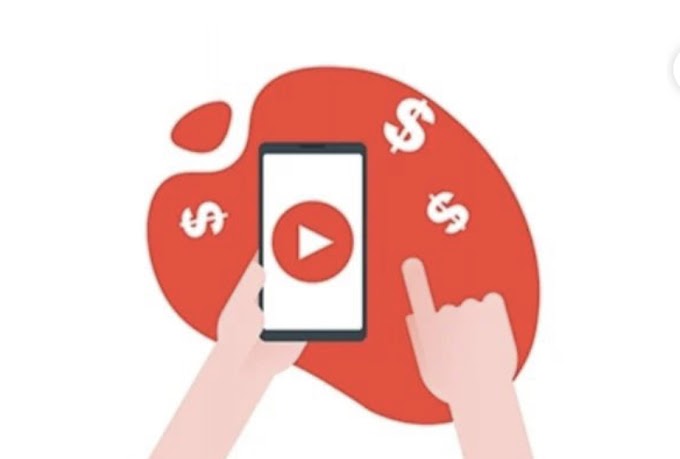WiseLife Walking Scam App
Never believe
The Deceptive World of 'Walk and Earn' Apps: Unmasking the Scams Behind the Promises of Free Gadgets and Quick Money
WiseLife promises rewards like cash and gadgets for walking and completing simple tasks, but many users report false promises, unfulfilled rewards, and personal data exploitation. Despite its enticing offers, the app often traps users in a cycle of tasks with no real payout, making it a deceptive scheme.
In today's digital age, we live in a world where the promise of "free" rewards is all around us. From cash rewards to the promise of gadgets like iPhones, AirPods, and more, a multitude of "walk and earn" apps has flooded the app stores, enticing users with the promise of earning money simply by doing mundane tasks such as walking, drinking water, and even watching ads. The idea sounds too good to be true – and unfortunately, in many cases, it is.
One such example of these apps is
WiseLife( Fraudulent app)
a popular app that promises users a chance to earn coins through various tasks, including walking and performing daily activities like drinking water. Users are promised rewards such as gadgets and cash after completing a series of actions, such as spinning a wheel, watching advertisements, or making coins. The rewards typically appear to be easy to earn, but beneath this facade lies a web of deception, where users end up trapped in a cycle of false promises and unfulfilled expectations.
In this article, we will dive deep into the workings of these so-called "walk and earn" apps, particularly focusing on
WiseLife and similar platforms, to shed light on the reality behind their offerings. Let’s explore how these apps promise users free gadgets and cash rewards, only to eventually leave them frustrated, scammed, and out of pocket. By the end of this piece, you’ll understand why it’s crucial to remain cautious before downloading these seemingly innocent apps.
The Tempting Promise of Free Gadgets
Let’s start with the allure of gadgets like iPhones, AirPods, and other high-end devices that these apps promise. These apps boast of fantastic offers: "Spin and earn gadgets," or "Make 200,000 coins and earn 35 USD." Such offers often captivate users, who are drawn to the idea of getting free stuff just for engaging with an app. Some apps even offer users a “lucky slot” or a "spin-and-win" feature to earn more coins or chances to claim gadgets. However, the core problem lies in the conditions attached to these promises.
Users are required to input personal information, including their email address, phone number, and sometimes even financial details. They are told that they need to accumulate a certain number of coins to be eligible for gadget delivery. The catch is that these apps are designed to delay or prevent actual payouts, leaving users stuck in a loop of tasks and false hope.
Walking for Coins: A Promised but Elusive Reward
For many users, the most appealing aspect of these apps is the ability to earn coins simply by walking. The idea of "getting paid for walking" has become a trendy concept, and platforms like WiseLife have capitalized on this by offering users the opportunity to earn coins every time they walk a certain distance.
In theory, walking should reward you with free money or coins. However, users often find that the app doesn’t track their activity correctly or sets such high thresholds for coin collection that it becomes virtually impossible to earn the promised rewards. The app often sends users on an endless cycle of "earning coins" with little to no tangible return.
Drink Water and Earn: The Ridiculous Claim
Another tempting feature that is often advertised by these apps is the “drink water and earn money” claim. The idea behind this is simple: users are encouraged to drink water throughout the day and then receive coins or cash as a reward. While it sounds like an innovative way to promote a healthy habit, it quickly becomes apparent that this feature is another way for these apps to collect user data while offering little or no return.
Users soon realize that the rewards they earn for drinking water are minimal, and they are required to complete other tasks, such as watching endless advertisements or completing surveys, in order to reach a substantial payout. Yet, even after fulfilling these tasks, many users are left without any significant financial compensation or rewards. Instead, they find themselves stuck in a cycle of unfulfilled promises.
The Bait: Watching Ads for Coins
Watching advertisements to earn coins is another common tactic used by these apps. The premise is simple: users are asked to watch ads in exchange for coins, which can later be converted to real-world money. While watching a few ads might seem harmless, the reality is much more frustrating.
Most apps that use this model require users to watch long ads, often several times per day, before they can accumulate enough coins to make a withdrawal. Unfortunately, the ads are often not just an inconvenience, but they are also designed to trap users into watching as many as possible without offering any meaningful reward. And when users finally accumulate the necessary number of coins, they often find that the withdrawal process is riddled with obstacles, making it nearly impossible to access the money or gadgets they were promised.
The 'Withdrawal Problem': Quotas and Delays
One of the most common complaints from users of these apps is the issue of withdrawal. After spending days or even weeks completing tasks, watching ads, and collecting coins, users attempt to withdraw their earnings, only to be met with a frustrating message: “Daily quota finished. Come back tomorrow.”
This message is typically a red flag, as it implies that users are being deliberately prevented from withdrawing their earnings. The withdrawal process is often delayed, and when it finally seems like the user is about to receive their reward, the promised delivery date is pushed further and further into the future.
For instance, some apps claim that gadgets will be delivered within 30 days of reaching the reward threshold. However, after the waiting period expires, users are left disappointed as the delivery never comes. These delays are an intentional tactic used to wear down users, hoping they’ll eventually give up and forget about their rewards.
The Final Betrayal: Scams Unveiled
As if the endless tasks and deceptive promises weren’t enough, the final betrayal of these apps is the realization that they were nothing more than scams all along. Many users report that, after weeks or even months of engagement, they find that their personal information has been compromised or misused. Worse, the promised rewards – whether they were cash payouts or gadgets – never materialize. Instead, users are left with nothing but the frustration of having invested significant time and effort into an app that never had any intention of rewarding them.
Reports from users often describe how they felt tricked into providing personal information, which was then exploited for marketing purposes or sold to third parties. In the end, these apps function more as data collection tools than legitimate sources of income.
How to Protect Yourself from 'Walk and Earn' Scams
So, how can users protect themselves from falling victim to these scams? Here are some essential tips to avoid getting trapped by apps like WiseLife and similar platforms:
- Research the App Thoroughly: Before downloading any app that promises rewards for simple tasks, check reviews and ratings from other users. If you see a pattern of complaints about false promises and unfulfilled rewards, it's best to stay away.
- Be Cautious About Personal Information: Never provide more personal information than necessary. If an app asks for sensitive data like your social security number, bank account details, or credit card information, it’s a major red flag.
- Don’t Fall for the “Too Good to Be True” Offers: If an app promises extravagant rewards with minimal effort, be skeptical. The reality is that earning significant rewards takes effort and time, and no app will provide instant payouts without conditions or limitations.
- Avoid Watching Excessive Ads: If an app constantly bombards you with ads or encourages you to watch ads in exchange for rewards, think twice before continuing to engage with it. While ads are a common part of many apps, watching too many for insignificant rewards is often a sign of a scam.
- Know When to Quit: If you find yourself stuck in a loop of unfulfilled promises and delayed rewards, it's time to walk away. Scams like these rely on keeping you engaged for as long as possible, so the sooner you stop, the less you'll lose.
Conclusion:
The Hidden Dangers of 'Walk and Earn' Apps
In conclusion, while apps like WiseLife and others may initially appear appealing, they often turn out to be nothing more than deceptive scams that exploit users for their personal information. They promise easy money, free gadgets, and other rewards in exchange for simple tasks like walking or watching ads, but in reality, they only deliver frustration, disappointment, and lost time. By recognizing the warning signs and staying vigilant, you can avoid falling victim to these scams and protect your personal data.
Always remember: if something seems too good to be true, it probably is.













